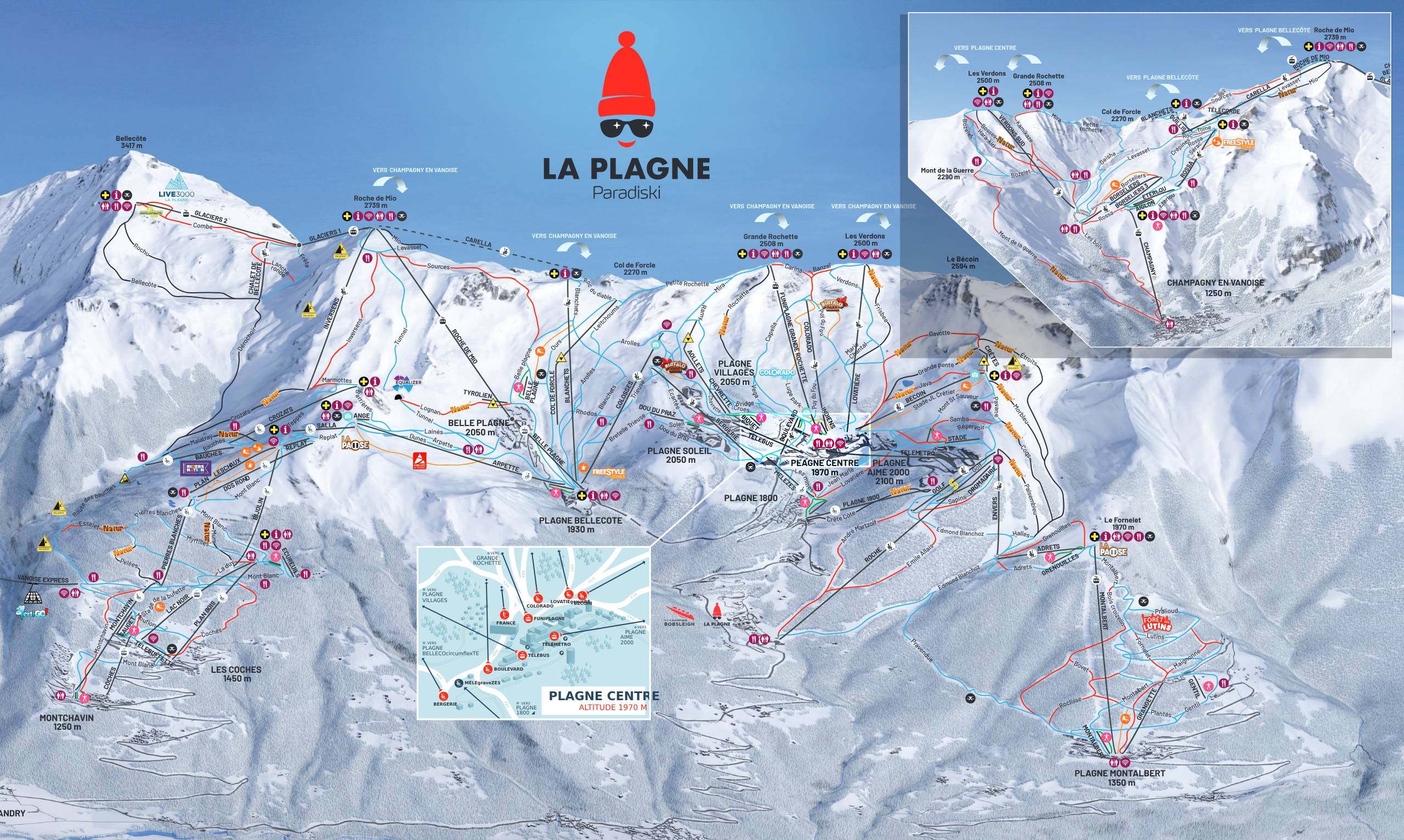Doing a La Plagne season
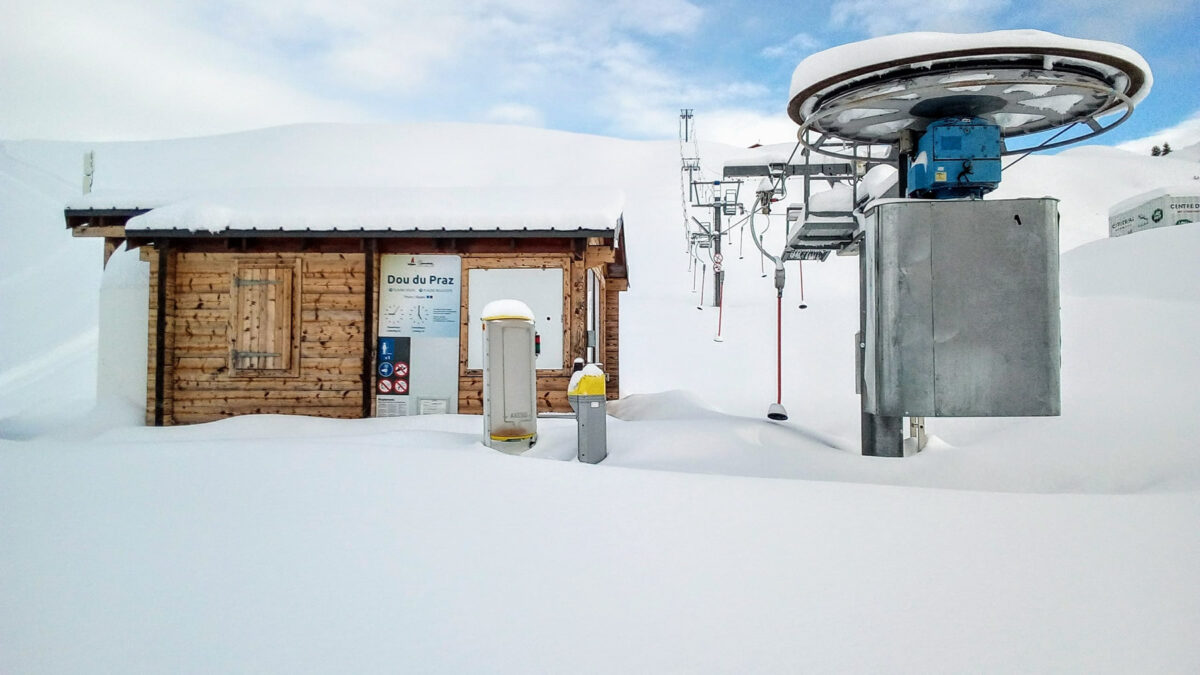
For the majority of skiers and snowboarders, the thought of doing a winter season is the ultimate dream. The chance to live high up a mountain with epic skiing and snowboarding on your doorstep through the entire winter is indeed a tempting prospect – but just what’s involved in packing up and shipping out for the winter? Below is a general guide doing a La Plagne season – although the advice here applies to pretty much any other ski area around the world too.
We also have a dedicated How to do a ski season video – but this text version is considerably more detailed and covers extra information and tips.
Why choose La Plagne to do a ski season?
La Plagne has 225km of pistes (425km if you include Les Arcs, Paradiski) and 11 different satellite villages. The terrain in the area stretches from 1250m in the valleys up to the glacier at over 3000m. In total, it has a rideable area of over 35,000 acres and is the 3rd-largest ski area in the world. The Paradiski stats make for eye-watering reading. It’s also the most popular ski resort globally and remains the world’s most-visited ski area.
And if those numbers aren’t enough to whet your appetite, you should probably quit reading now and go look for another area to do your season. Above is just a taster of what doing a season looks like – click for an idea of what it’s like to do a season in La Plagne.
Get an idea of the pistes and lifts in La Plagne
We’ve put together a route to see the best of La Plagne in a day. This page also has the pistes cut into segments so you can follow it more easily. If you’re looking for less detail, click for the guide to La Plagne in a day full video.
To get a better idea of the full area, check the La Plagne in 3D and Paradiski in 3D videos so you can decide which is the best La Plagne village. You may want to check our La Plagne month-by-month guides.
If you’re on holiday in La Plagne and are at an early intermediate level or above, this route should be easy to follow and will give you a good taster of what to expect from your La Plagne ski holiday or La Plagne ski season. Even if you’re at home pondering the idea of a La Plagne winter season, watching this edit will still give you an idea of the vast terrain on offer in this epic ski resort.
Advice for how to do a ski season
With more than ten seasons under my belt, I’ve probably spent enough time in the mountains to be able to offer at least a small insight into how to make things easier doing a season. Plus, running a YouTube channel for many years, I’ve been asked this same question by so many people that it seemed a no-brainer to finally put this stuff down. While these tips for doing a winter season are by no means exhaustive, hopefully, you’ll find some useful info to help make doing a ski or snowboard season easier. As mentioned earlier, these tips are very much aimed at La Plagne – but they’ll work for most other ski areas too.
Point of note 101 – The Brexit effect
No matter where you stand on the Brexit debate, when the UK left the European Union it made doing a winter season considerably more difficult. Not only are you limited to 90 days in Europe now (unless you get a European work visa relevant paperwork), you’ll also find many employers are considerably more reticent to employing UK workers.
Of course, if you’re European by origin, this proviso won’t apply to you – but be warned, working abroad is now much harder than it used to be.
1. Finding work for a winter season
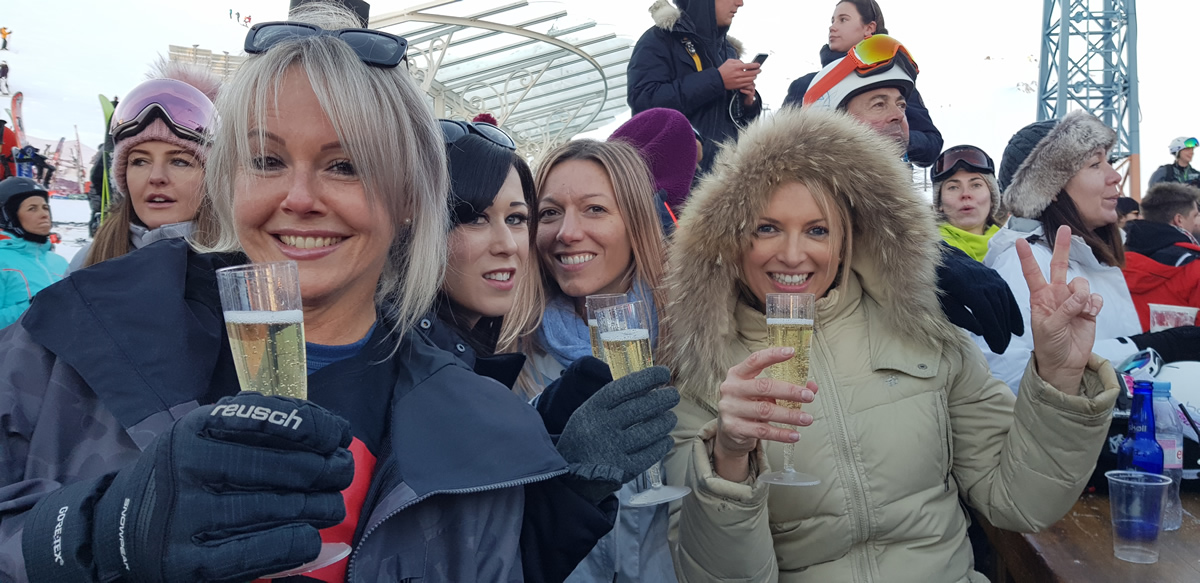
Once you’ve decided you’re doing this – you’re doing a season – you’ll likely be desperate to get going and get it all sorted as quickly as possible. Your first priority will likely be finding work and, hopefully, somewhere to stay. In all likelihood, you’ll probably make this decision over the summer – however things in the mountains don’t work quite like that.
The off-season in most ski resorts
In the main, when the resorts close in April, most of the business owners (ie the people you want to employ you), take a well-earned summer break. Some bigger ski areas re-open through July and August (especially if they have glacier riding) but, even then, nobody is particularly thinking about winter yet. In reality, most vacancies don’t come up until September / October – and even that’s early for some places.
The advantages of finding work with a ski holiday company
The exception to this rule is the ski holiday companies. In the main, the majority of holiday company jobs are assigned over the summer months – with the obligatory training days taking place through late autumn. There are numerous advantages to working for the tour companies – mostly the fact that you’ll be fed, housed and, often, given a lift pass for free (check this first as company policies differ – though most give the full package). The pay is, in the main, pretty dire – but then again, this is money in your back pocket as everything else is covered.
Ski season accommodation with travel companies
A word of warning as far as staying in travel company ski season digs goes – you’ll need to be comfortable with the idea of living with strangers as almost all staff accommodation is shared, typically with bunk beds in pretty compact and bijou rooms. Still, it’s a great way to do a season on the cheap – and you have more or less everything done for you, including getting out to the resort which is normally taken care of by your employer.
Useful resources for finding ski season accommodation
To apply for tour operator work offering all-include La Plagne holidays, either go direct to the companies through their websites or you can also browse jobs on dedicated ski season sites such as http://jobs.natives.co.uk, https://www.workaseason.com, https://www.seasonworkers.com/skijobs or https://www.ski-jobs.co.uk. There are many other resources – Google ‘ski season jobs’ for other options.
2. Finding accommodation for the winter season
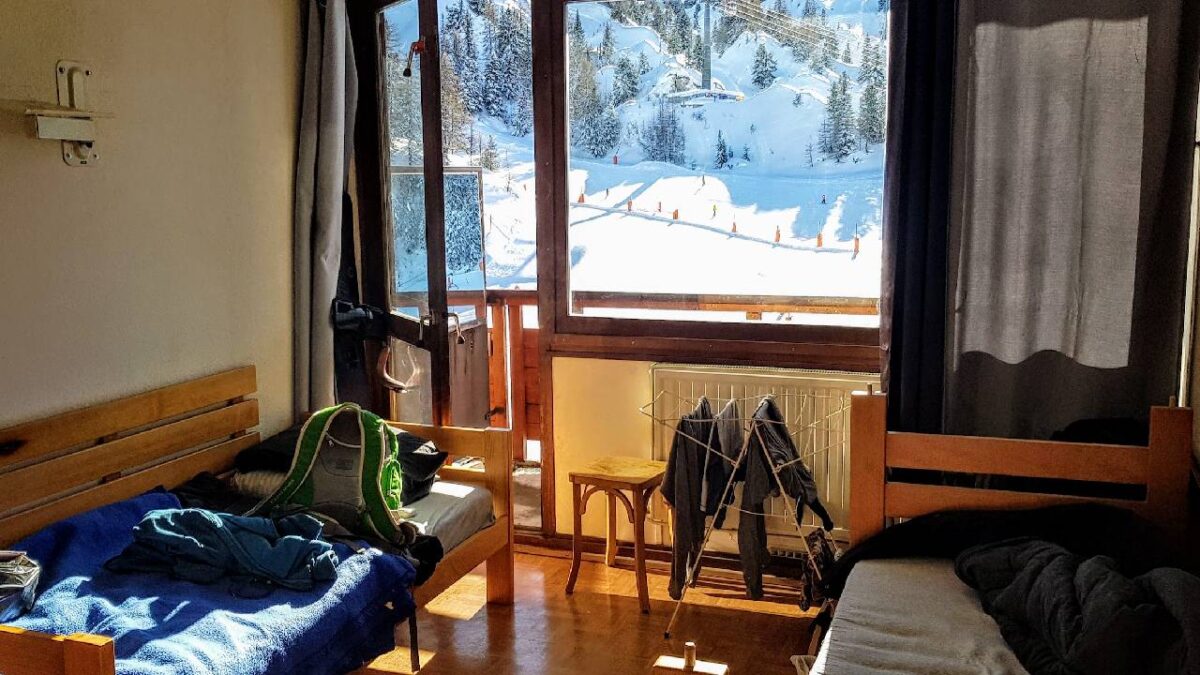
Almost without exception, your best bet for finding work or work with accommodation in ski resorts is to sign up to Facebook saisonnier pages. Yep, in the modern, connected world this is where you’ll normally find things are posted first. This La Plagne seasonnaire page is pretty useful and features up-to-date resort info. You can also post to this page looking for work – but be careful how much personal information you divulge.
Accommodation in the Alps is a nightmare these days (well, at least it is in France – but I can’t think it can be that different other places either). In La Plagne, it’s particularly problematic. The incessant rise of sites like Airbnb have made it much too tempting for property owners to put their digs online – and win big as a result. End of the day, most owners know they will make considerably more money renting weekly to holidaymakers than they’ll ever be able to charge the typical saisonnier.
Accommodation has become so much of a problem these days that many resorts are now providing dedicated saisonnier apartments. In the case of La Plagne, these are located just below Plagne Bellecôte but space is very limited and, somewhat understandably, French workers are almost always preferred over foreigners. They also tend to favour core resort workers like lifties, technicians, ski patrol, etc. You may also want to check this link for detailed information on the best La Plagne ski in / ski out villages.
Useful resources for finding ski season accommodation
There is one specialist site you could try – livetheseason – although this site’s prices are often hugely inflated compared to finding accommodation on your own. The best bet for finding a place to stay remains signing up to the saisonnier pages. Check out La Plagne 360’s Facebook page as we’ll post any vacancies we hear about.
3. Winter season dilemma – go it alone or go as a group?
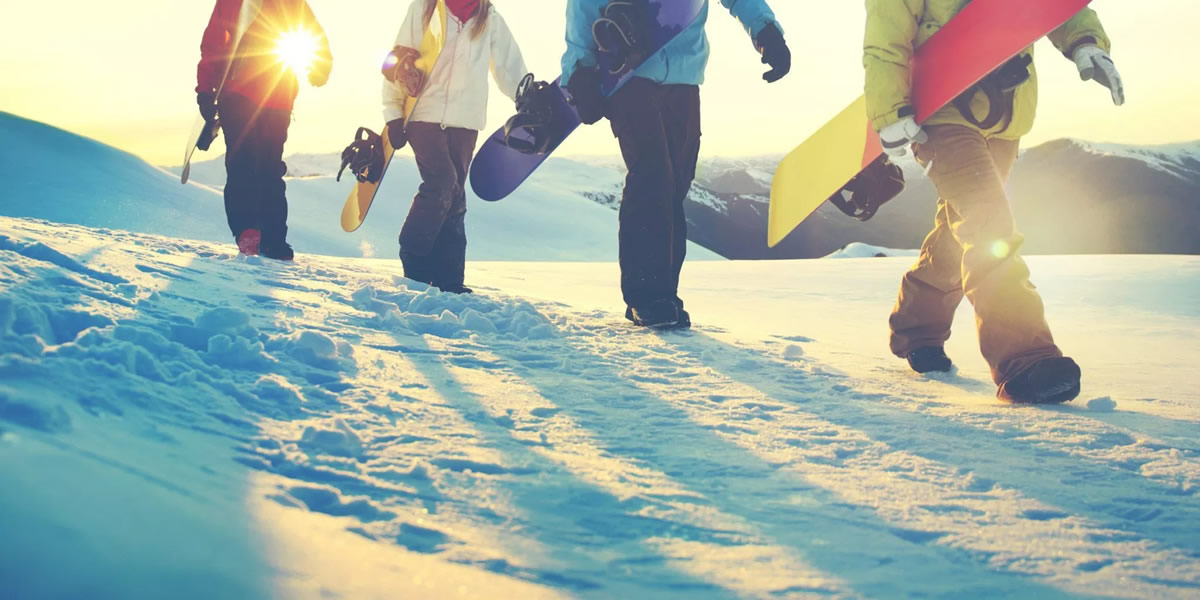
This is a tricky one for any number of reasons. For a start, it’s fairly unlikely you’ll find yourself in a group of friends that all want to do a season exactly when you want to – or perhaps where you want to – but, if you can, try and get a few of you together. Everything works out much cheaper when you’re in a group i.e. single occupancy rooms in transit hotels or even in your seasonal accommodation are always going to end up more expensive.
It’s also handy having other, trusted people around you – particularly if this is your first season or extended time away. Even just simple things like going to the toilet in airports becomes more difficult if you’re lugging around your ski / snowboard kit. Plus, going with other people will mean guaranteed group riding – always better than riding alone.
Doing a winter season alone vs with mates
While the above is undoubtedly true, there is one definite advantage to travelling alone – namely that you are far more likely to meet and speak to new people if you travel on your lonesome. People are always more approachable when they’re alone – plus you’ll likely find you will make more of an effort to talk to strangers. So, there are two sides to this one. Travelling alone definitely isn’t all bad. I’ve done it for years.
4. Try to find a job that includes accommodation
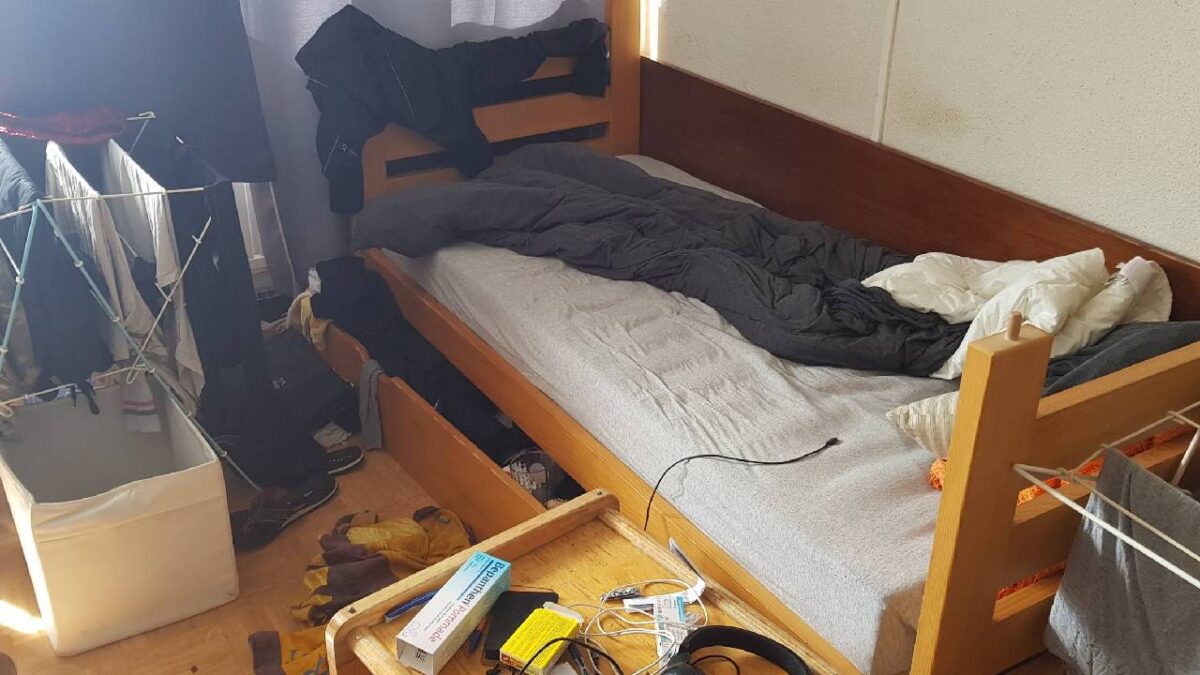
If possible, try and find a job that comes with accommodation included. Sure, you may well end up staying with the very same people you work with each day – but it’s a much cheaper way of doing things than going it alone.
Many bar jobs come with some kind of accommodation included – to the point many bar owners also own apartments, specifically for their staff. This is becoming more and more common what with Airbnb / private owners squeezing the available resort accommodation.
5. Speak to people to learn how they did it
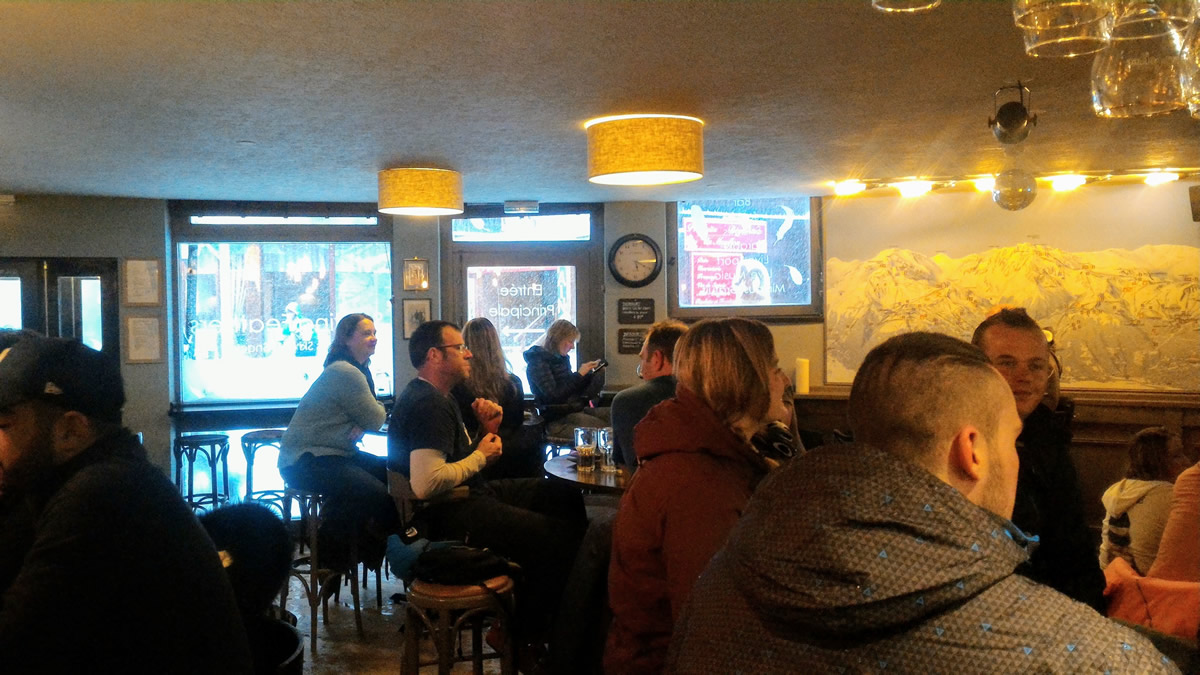
This really should be pretty obvious – but it’s surprising how many people don’t think of it. Chances are, wherever you’re planning to do a season, you’ll have been there on holiday before – after all, we tend to go places we know.
If you’re on holiday in that same resort before your intended season, try and speak to people. Almost all resorts (La Plagne included) have bars that are favoured by saisonniers. In La Plagne, try La Mine in Plagne 1800, Igloo Igloo in Plagne Centre or Spitting Feathers in Plagne Bellecôte – all of which tend to attract locals. Tim at Spitting Feathers has done around 30 seasons in the area and what he doesn’t know about La Plagne really isn’t worth knowing.
Just bear in mind, no matter where you want to do a season, it’s almost always a case of who we know – not what we know – that counts (as with most things in life).
6. Get fit before doing a winter season
I really can’t stress this one enough. Skiing and snowboarding are both physical sports that exercise muscles you simply don’t use in everyday life. There are few things worse than getting leg burn within the first few hours of being out on the hill. Yes, you could argue you’ll build muscles the more you go up but really – why bother wasting that time when you could easily get yourself in reasonable shape before you leave?
Stretching is as important as building muscle for a season riding
Getting fit doesn’t just apply to building muscle – rather, you want to be doing stretching exercises too to get yourself limber for riding. Many ski and snowboard injuries are caused by seemingly innocuous falls and, more often than not, involve pulls and sprains. You can avoid both by doing stretches and exercises before you’re anywhere near the mountains. Search YouTube for specific ski and snowboard fitness videos.
Also, while many will mock, it’s actually a good idea to spend 5-10 minutes each morning doing stretches before you head out. UK ex-Olympian snowboarder Aimee Fuller has a great 20-minute workout on the YT feed above.
7. Getting a discounted winter season pass
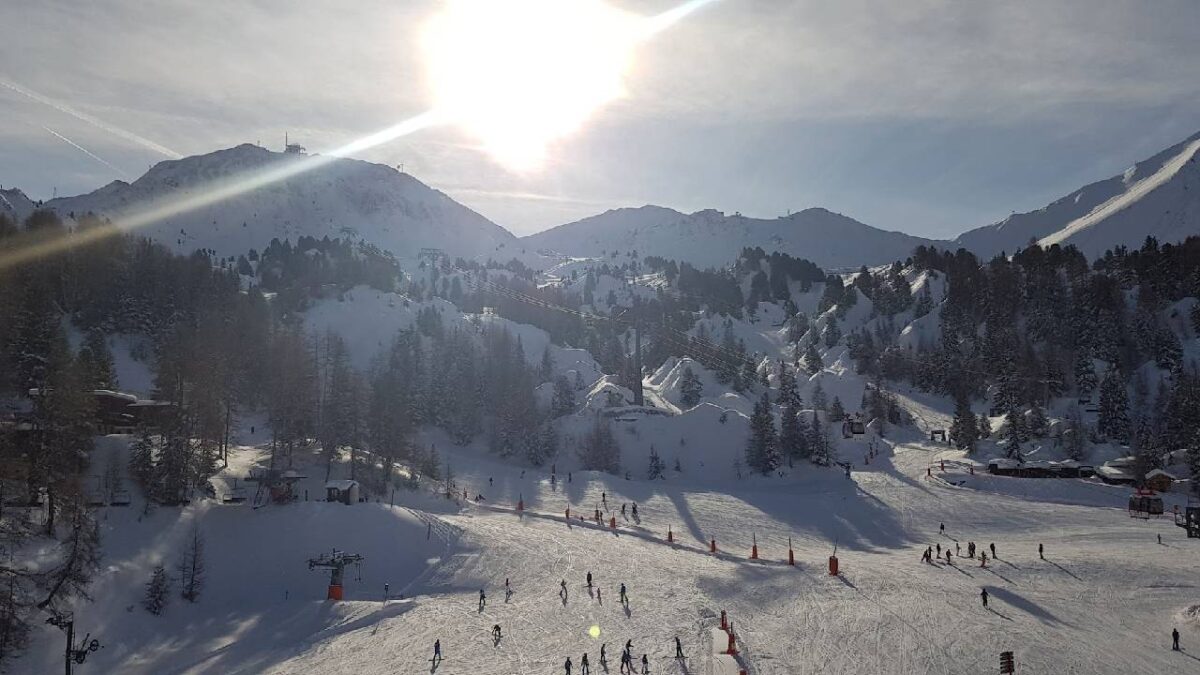
Resorts don’t like to talk about this but a season pass is usually massively cheaper than the typical punter rate – you can be looking at as much as 75% cheaper. The figures are easy – we can be talking about 400€ compared to the full price 1200€+ in some stations. That’s a lot of coin that you could otherwise spend far more wisely on Génépi . . .
Tips to get your season pass discount
To get a saisonnier season pass, pretty much all resorts will ask to see a valid work contract from your employer (if you’re super lucky, some employers will give you a pass as part of the job) and very often proof of accommodation (ie a rental agreement or proof of ownership). Bottom line though, in the vast majority of resorts you will need a work contract to get the reduced price, regardless of anything else.
As a freelance journalist, I still have issues getting a reduced pass, year on year. It’s much better if you have a bona fide employer in resort. Another thing worth considering – many resorts are now upwards of 50€ for a day pass – so, even if you only have one or two days off per week, in most cases you’ll still save money if you go riding eight days or more through the season.
Buying a season pass vs buying day passes
It might seem like a big outlay at the start but those single days up the hill soon add up. It should be pretty easy to work out if a saisonnier pass makes sense for you. La Plagne also offers two-day per week season passes – but they come in quite pricey when compared to the full pass and, somewhat obviously, will limit how many times you can go up.
8. Saisonniere bar / restaurant discounts
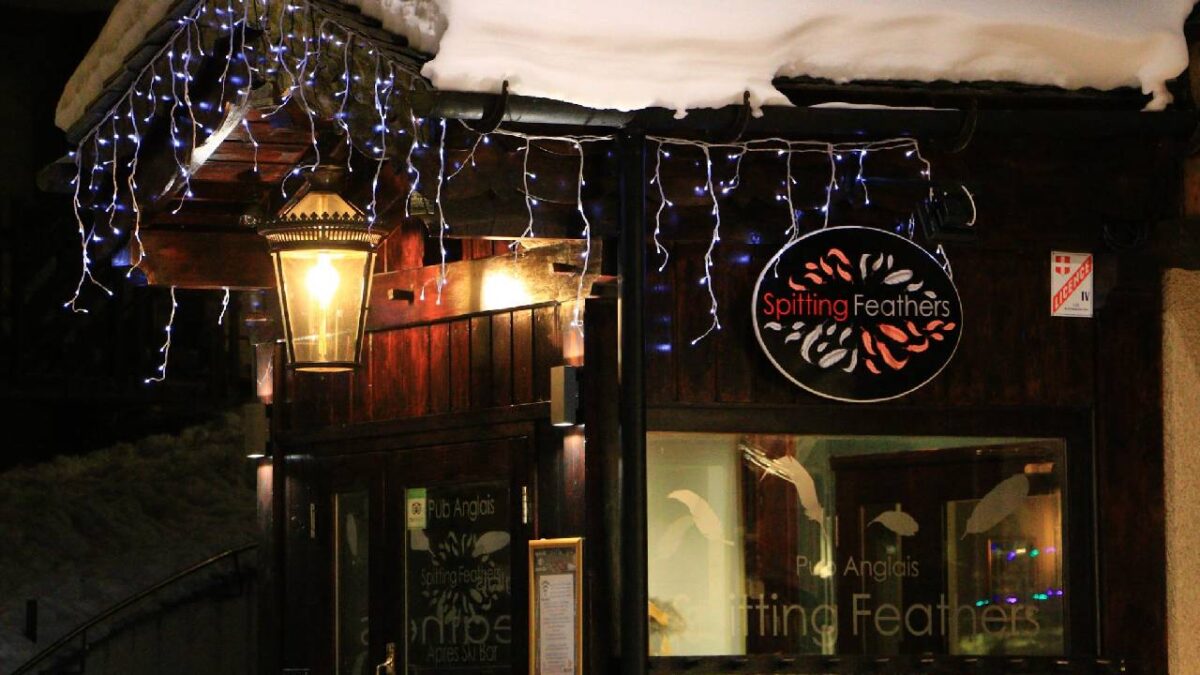
Again, this is something most bars/restaurants don’t like to advertise – even though almost all do it. If you’re a saisonnier, you’ll normally qualify for a discount on drinks. Discounts are less common on food for some reason – but most bars will still knock down your drinks once you get your face known. Check our guide to La Plagne’s best aprés ski.
Tips to get saisonnier prices while doing a ski season
The first week you arrive in resort (which is normally much earlier than everyone else – often before the resort has even opened), get your face known. It pays dividends to do nights out early in the season. Plus, you’ll get to meet more people – friends that you’ll likely end up knowing the entire season.
9. Don’t break yourself
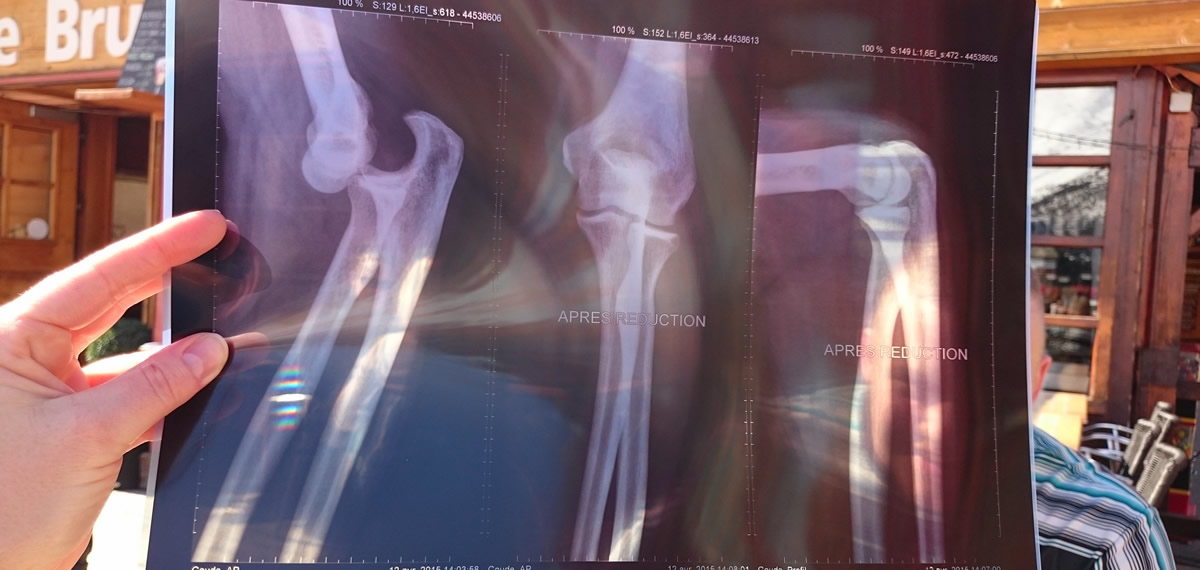
Another one that should be obvious – but so, so often isn’t. Do not break yourself.
Every season I’ve done, I’ve known people that ended up going home early through hucking it too big or too fast through the first few days. Do not be that person. Check this article detailing the importance of La Plagne ski insurance or go direct on this link for the best ski season insurance.
Doing a season isn’t like being on holiday
Remember – unlike the normal holidaymakers, you’re here for the duration. In most resorts, this amounts to around four and a half months. Even if it snows like the dawn of Armageddon when you first arrive, there will be many more epic powder days before the season is out.
This isn’t like a holiday where you just have limited days on the hill. Think ahead. And anyway, you’ll always find your riding is way better at the end of the season than at the start. Leave those epic park days for later in the year.
10. Speak the language – tips for doing a winter season
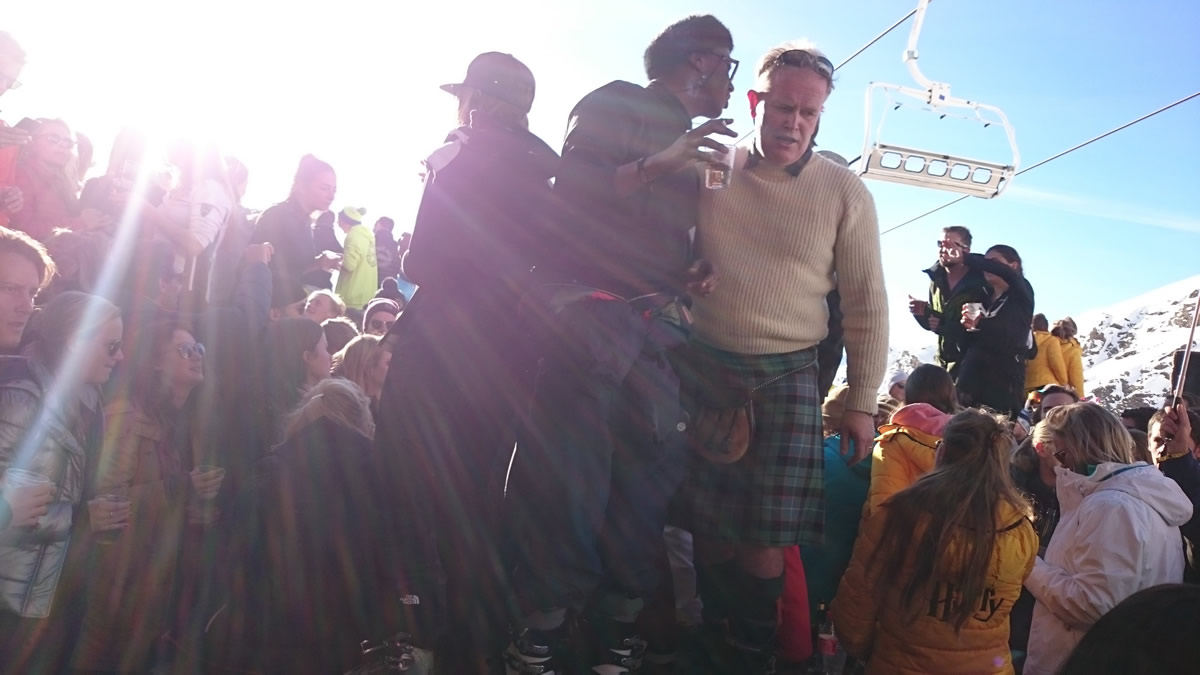
Here’s a truth – and it applies in resorts the world over, summer or winter . . . locals appreciate if you at least try to speak their language. I’m not necessarily meaning speaking fluently – though it is a huge advantage if you can – but I’ve never been anywhere where the locals don’t warm to a trier.
Locals will appreciate your effort if you attempt to learn their language
If you’re taking a job in resort, it’s almost always a pre-requisite that you can speak that country’s language. Sure, some jobs like plongeurs (dishwashers) or general cleaners don’t really involve much interaction with the public – but you’ll still likely be surrounded by people from that country (ie it’s good if you’re able to speak the language to at least some degree).
Knowing a little of the local language goes a long way – and that even applies to just everyday things like shopping, asking directions or ordering food and drink.
There are now countless online resources and apps that allow you to practice languages (Duolingo will at least teach you the basics). However, if you’re budget allows, there’s really no substitute for dedicated language lessons.
11. You don’t need to pack much to do a winter season
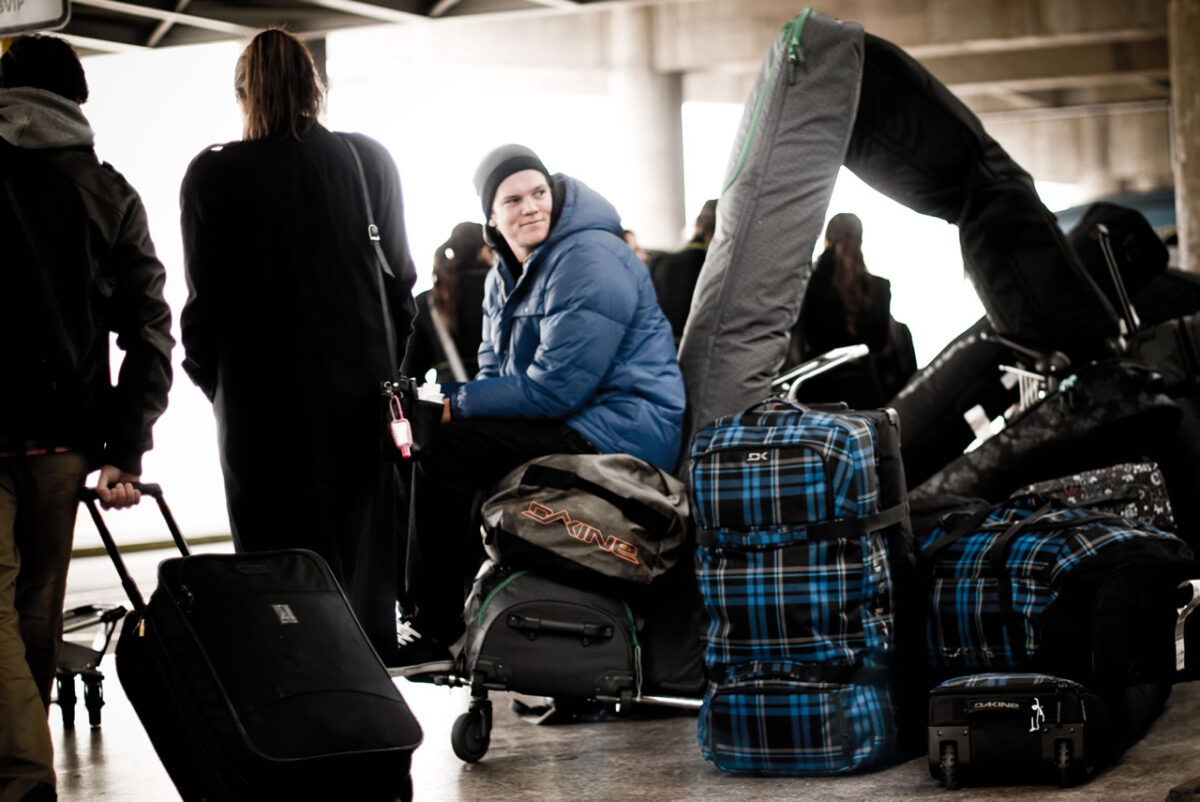
Seriously, you really don’t need as much as you think you do. Contrary to what you might be thinking as you consider the idea of spending 5 months in a different country, you honestly do not need to take a lot with you. You can quite easily get by on a week’s underwear, a few T-shirts, a couple of pairs of trousers and possibly – at most – two pairs of shoes. You’re not on holiday – you’re here to work and ride. The holidaymakers can look like punters wearing a different outfit every night. We are not the same.
What to pack for a winter season
The things you’ll likely wear most will be your ski/snowboard gear – jacket, salopettes, fleece, hoodie, gloves, etc. This changes a little if you’re working a more formal role as you may need work clothes – but many places will give you a uniform in that case. The rest of your stuff should be snowboard or ski-related. It’s what you’ll wear the most.
The ultimate packing ski / snowboard packing list
This might seem alien at first – but trust me – lugging 90kgs around at the start and end of the season is more pain than it’s worth just to apparently “look cool”. We’ve put together a comprehensive list of things we’d recommend for a ski/snowboard holiday – and I really do mean ‘comprehensive’. You likely won’t need even half this stuff.
The list is meant more as a guide for people who haven’t been on a winter trip before and have zero experience of what they should take. One thing you will definitely need but that’s often overlooked is a four-way extension lead. There are *never* enough sockets in any accommodation, anywhere. And if you’re sharing, this situation only gets worse as you vie for the last spare power source in the room.
12. Shop in the valleys to save money on a winter season
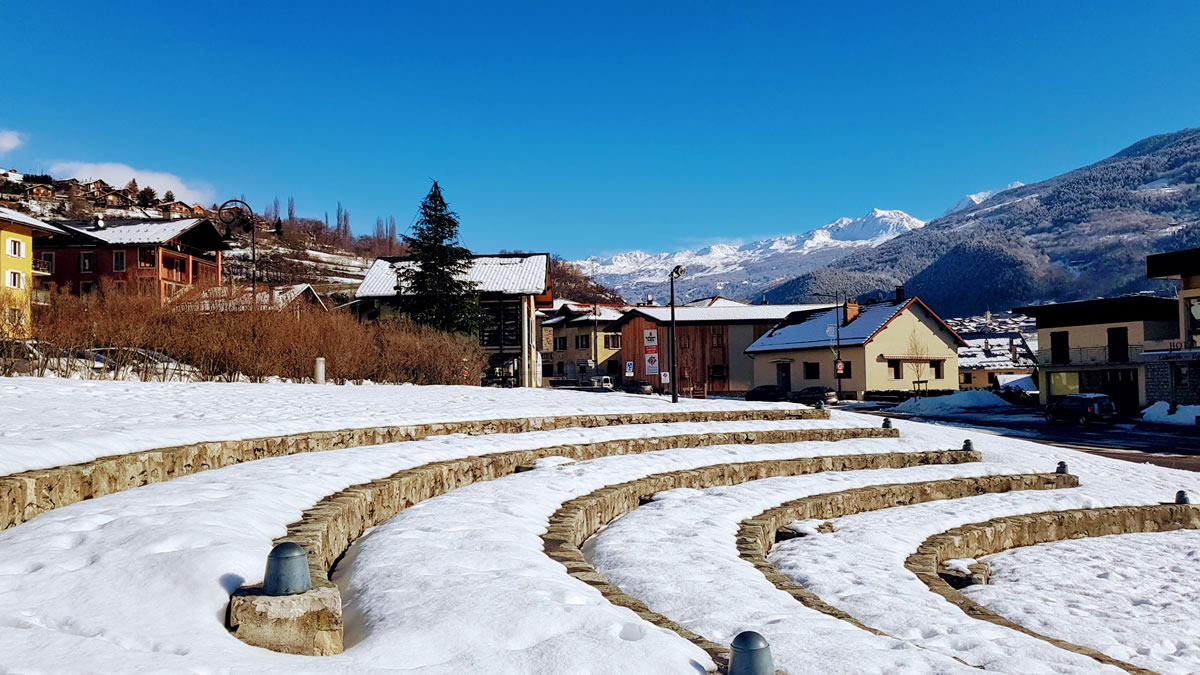
Ski resorts are expensive. This is just an unavoidable fact of life. The reasons are numerous but one simple truth is the bar / restaurant / shop owners know their customers are isolated – most times at the top of a mighty big hill, with no option for buying anywhere else. Read our guide for shopping in La Plagne’s valley supermarkets. Also, if you don’t have transport, you should check the timetables for La Plagne’s valley buses. Alternatively, you could also look at taxi services or transfer companies.
Shopping in the valleys will always save you money
While it can be argued business rates in the mountains are high – and yes, it’s more expensive to get goods up the hill – and yes, the owners often only make money 5 months of the year, etc – it’s still an undeniable truth that you, the punter, will have no option but to pay these inflated prices when you’re in resort. However, if you’re doing a season or on an extended stay, you have other options – and the biggest, best and cheapest of those is to shop down in the valleys (or even further away from the resort). The savings can be massive.
Speak to any locals that live in resort and they’ll confirm the same. Very few shop in on-the-hill supermarkets.
Do one big shop at the start of the winter – it could last you all season
My advice – do one big shop at the start of the season that will see you through to the end. This should involve getting the staple items that tend to be ridiculously expensive in ski resorts: toilet rolls, cleaning liquids/cloths, etc, tinned / frozen food (remember and check how big your freezer is), pasta, jars of sauces, etc.
Doing a shop at the start of the season means you’ll normally only go to the local shops for perishables (ie fruit / veg / milk / bread etc). You can save a fortune.
In answer to the query (which was strangely one of the most common questions I was asked doing seasons in La Plagne) – Does La Plagne have a McDonalds – have a look on the link if you find your MaccyD cravings take over. There are options.
13. Get to know someone with a car – or take your own
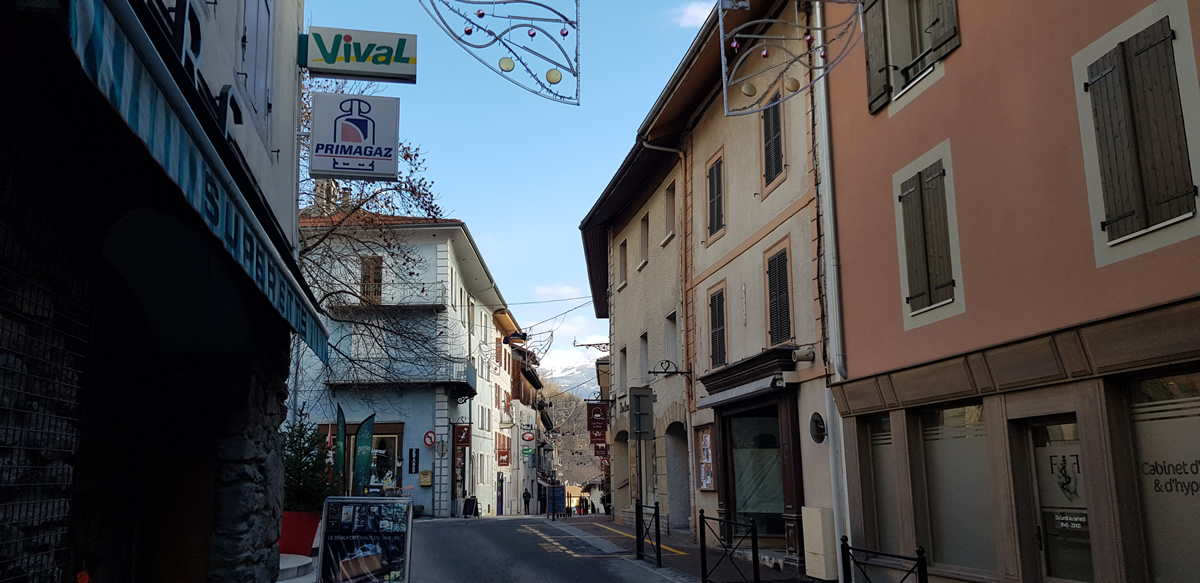
Linked to the tip above, having access to private transport opens up a world of opportunities – not least of which is being able to shop in the valleys. But it’s more than that. At some point, you may need to go home – or will maybe want to take a trip to a neighbouring resort – whatever the reason, having access to a car is beyond useful.
Being stuck up a hill usually means getting down is expensive. Having mates with a car (or having your own) is a huge advantage. Plus it’s way easier getting that start-of-season shop back up the hill in a car than on public buses.
While there is is a good network of La Plagne shuttle buses and a relatively regular valley bus service to get you down Aime, it’s still much easier if you know someone with a car.
14. Be realistic about what doing a season means
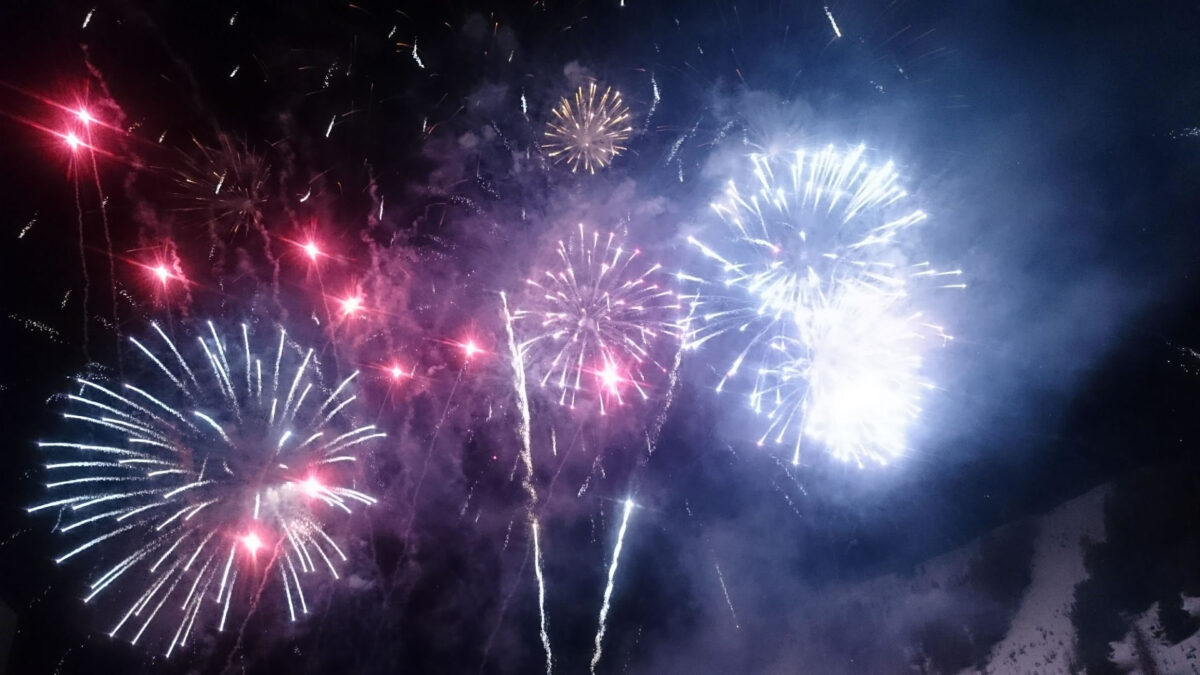
As I write this in late December, we’ve already seen the first dropouts of the winter with people returning home. These numbers always increase just after the New Year as the festivities end and normal life resumes. For many, doing a winter season will be their first extended time away from home and away from friends and family.
What is doing a winter season actually like?
The first few weeks of the season are almost always a frenzied blur as you settle into new digs, get used to new responsibilities in your job and just generally find your feet. Then Christmas arrives – a baptism of fire before you’re even sure what you’re supposed to be doing – often with difficult clients at one of the busiest times of the year (see this guide for the quietest times in La Plagne). Couple this with often having a general feeling of missing the security and familiarity of home and many people find themselves getting disillusioned.
Top tips for winter saisonniers
I’ve said many times, doing a season is just a microcosm in the mountains and you will – 100% for sure – have good days and bad days. The key is to try and stay realistic with yourself, recognise the down moments are temporary and just knuckle down through the bad moments. They pass.
Year on year, there are always people who decide a season isn’t for them and head home after Christmas and New Year. It might be from feeling homesick – it might be just that they had a wholly unrealistic vision of what a season is really like – but, whatever the reason, vacancies always crop up at the start of January. Again, keep an eye on the saisonnier Facebook pages – or check the season employment sites listed above to see what opportunities might crop up.
Incidentally, if you are in the position that you’re questioning why you’re doing a season, my personal advice would be to try and see it through. Life as a saisonnier isn’t supposed to be easy – but it’s also a very simple and very fair trade. You may be working the worst job you’ve ever done and be living in accommodation you’d never dream of living in at home – but, by way of recompense, you have an Alpine playground on your doorstep and will be making memories and friends that will last a lifetime.
15. Picking up work later in the season – yes it’s possible
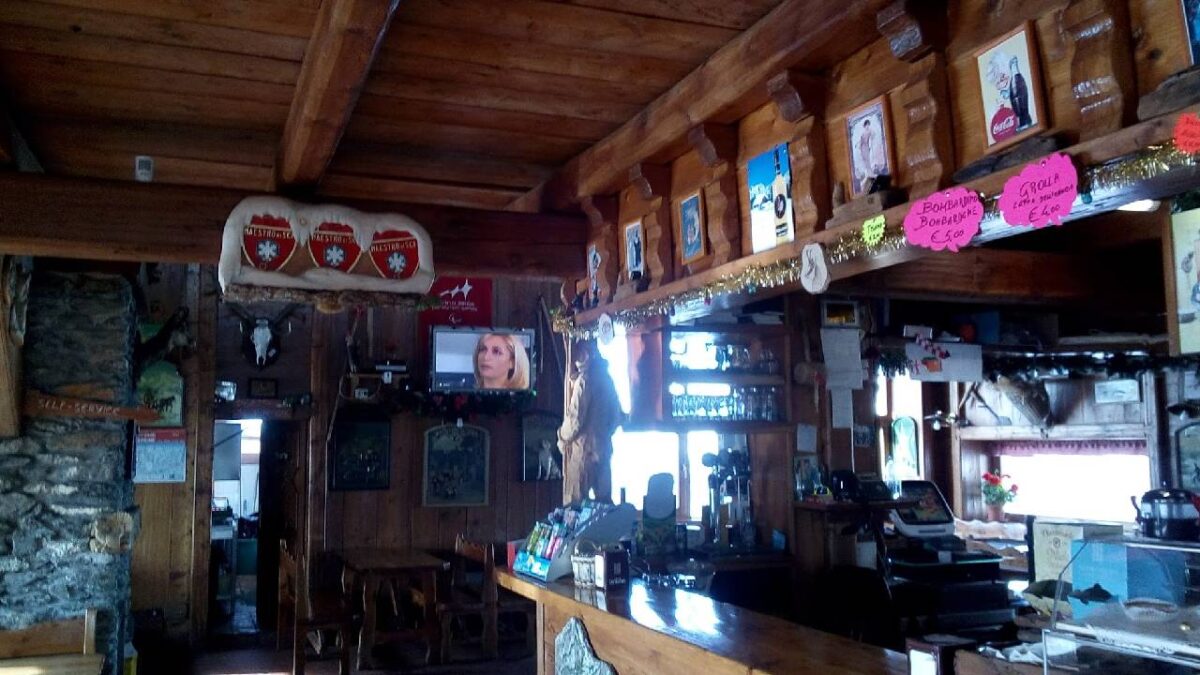
Linked to the above, if you weren’t fortunate enough to find work or accommodation in the ‘first round’ (ie before the season started), you will pretty much always find opportunities appear again at the start of January.
Finding January jobs in ski resorts
Year on year, there are always people who decide a season isn’t for them and head home after Christmas and New Year. It might be from feeling homesick – it might be that they had a wholly unrealistic vision of what a season is really like – but, whatever the reason, vacancies always crop up at the start of January. Again, keep an eye on the saisonnier Facebook pages – or check the season employment sites listed above.
16. Never travel without duct tape – ever (season or not)
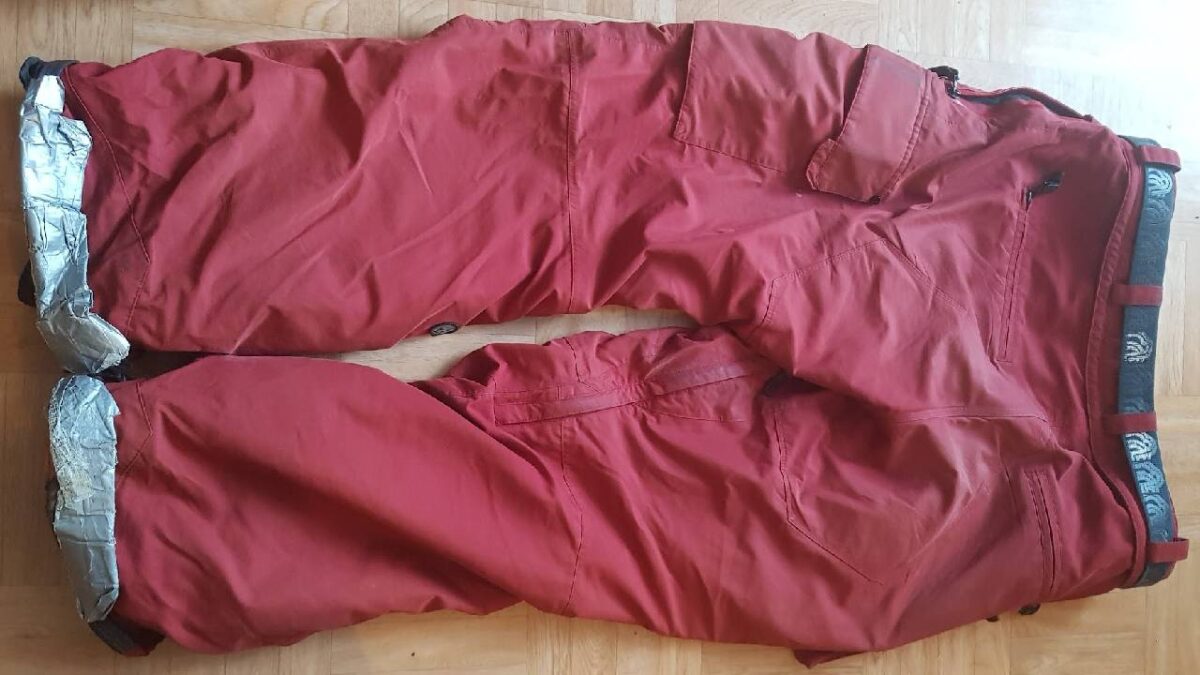
This actually applies to any ski or snowboard trip, anywhere – at any time. Duct tape is the bona fide fixer of all things. Never, ever travel without it. And while we’re on the subject of fixing things, snowboarders should also always ride with at least one spare binding strap and a mini-driver to fix inevitable on-hill issues.
Ski kit tends to be a lot more robust – plus there are normally screwdrivers that will fit most ski set-ups at the bottom or top stations of ski lifts. Snowboard kit (particularly binding straps) are notoriously fickle and prone to breaking.
Other tips for winter saisonniers
String and drawing pins are also handy (for any number of reasons) as is Araldite. You also won’t go wrong with earplugs, particularly if you’re sharing an apartment. A lot goes on in shared seasonal accommodation – most of which you probably don’t want to hear.
17. Become an expert – not just a sketcher pub expert

And by this, I don’t mean like one of those know-it-all but actually knows-sh*t-all experts. Rather, I mean learn the useful stuff and read up on things you need to know to be safe in the mountains. Becoming an expert in the weather is pretty much obligatory (you’ll talk a lot about the weather when you’re doing a season) – but also learn about avalanche theory, safe zones to ride, the best places to go when the holiday crowds arrive, following the sun for the best conditions etc. It’s also worth checking this link to find the best snow in La Plagne as conditions can vary considerably as the season progresses.
Find out the secret stashes from other saisonniers
Also, ask around existing saisonniers so you can learn where to find the secret stashes only the locals hit. Not only will you end up having a better, more rewarding season – you’ll also be able to help others (though, please, don’t go telling everyone where those secret zones are). You’ll also want to learn La Plagne’s busiest areas and La Plagne’s quietest areas so you can maximise your riding. Note, this can change from day to day but the guide is generally sound. Also, during the holidays, follow these tips for when La Plagne is busy.
Build your knowledge while you’re doing a winter season
Having this kind of overall mountain knowledge means, should the worst happen and you find yourself in a ‘situation’, you’ll be much better equipped to get yourself and those around you out safely.
18. Insurance for doing a winter ski or snowboard season
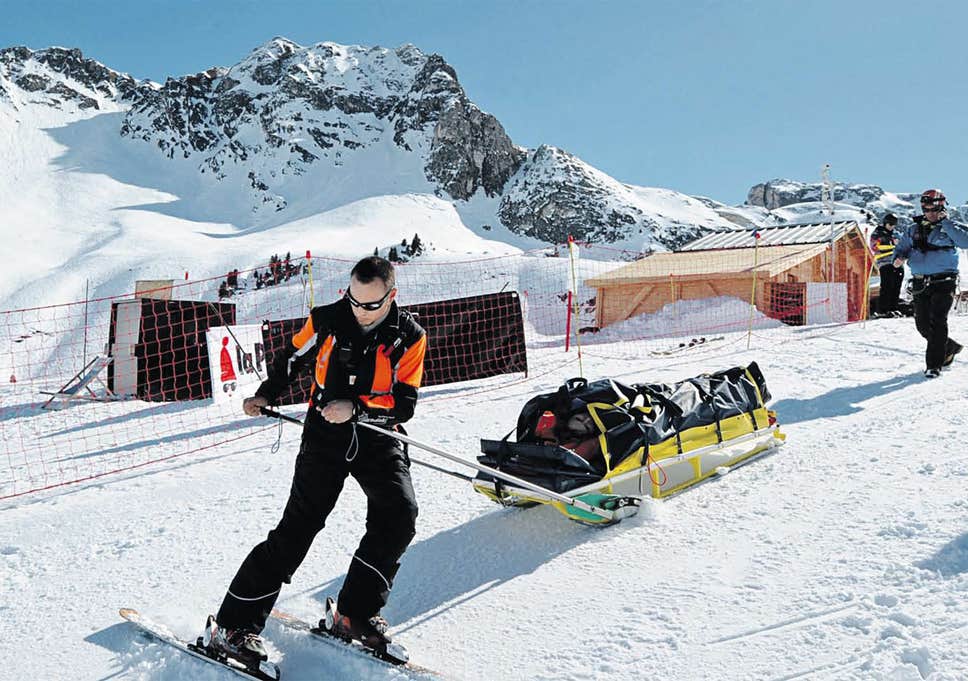
We all hope the worst won’t happen but even if you’re just on a winter holiday – never mind doing a season – you should get insurance. If you’re pushing yourself at sports like skiing and snowboarding you’re never that far from a fall or an accident with others – and this risk only increases if you’re out on the hill as often as you will be during a season.
The best insurers for doing a winter season
Insurance is a necessary evil. Of course, it’s annoying when you don’t use it but, should the unthinkable happen, you’ll be very glad you had cover. The fees for uninsured rescue soon mount up. For example, an average helicopter rescue costs 1700€ – an on-hill rescue is 370€ upwards – even just an ambulance or taxi to the closest medical centre can cost upwards of 200€. The figures get mind-boggling when you also include the treatment you might need.
Why you need cover doing a ski or snowboard season
Don’t leave your health to chance. You definitely need some form of insurance. The type and length of cover will be down to what you intend doing but season-long insurance is (obviously) more expensive than regular holiday insurance. Still, it’s actually quite competitive when you consider what you’re doing. Click to read more about the best La Plagne ski insurance and reasons why you need it. Companies I’d recommend (and have tried and tested in the past) include:
Types of ski / snowboard season insurance
True Traveller: True Traveller is the best and most flexible insurance company I’ve found. They’ll even cover you if you’re already outside the UK – almost all other companies stipulate you must be in the UK when you purchase your policy. And most also insist you were resident in the UK for at least six months. This simply isn’t practical for many travelers and saisonniers. TrueTraveller is a specialist in long-term, backpacker / ski season insurance. They also cover you for everything you need to do a full ski season eg personal liability, accidental damage, lost luggage and belongings, personal injury, repatriation, extreme sports, gadget cover, etc. They even cover off-piste and park riding as standard – plus a multitude of other activities that most insurers steer well clear of. In short, they offer the full shooting match at an unbeatable price without time limitations. And, perhaps most importantly, from personal experience I can guarantee they step up when you need them. Unfortunately, the same cannot be said for all insurers.
Carre Neige: Carre Neige is an affiliation of brokers, insurers, assistance organisers and ski stations offering unrivalled mountain insurance in the Savoie region of France. Unlike many ‘official’ insurers, Carre Neige offers complete on and off-piste cover. Even if you already have insurance, it’s still worth considering this as a backup. Carre Neige can be purchased when you buy your lift pass in the station for a small additional premium. Full-season cover is also available (and highly recommended). They’ll even reimburse a percentage of your season pass in the event the worst happens and you need to curtail your winter. If you’re looking at doing a season in other resorts, ask locally what type of cover is available – most bigger ski resorts offer similar cover.
Other insurers: There are obviously other insurers available however pretty much all run 90-day cover (meaning you will need to return to the UK to reactivate your policy every 90 days) and tend to be considerably less comprehensive than True Traveller in terms of the activities they cover. Look around but, after so many seasons abroad, I have yet to find a better insurer than True Traveller.
19. If you need them, get lessons
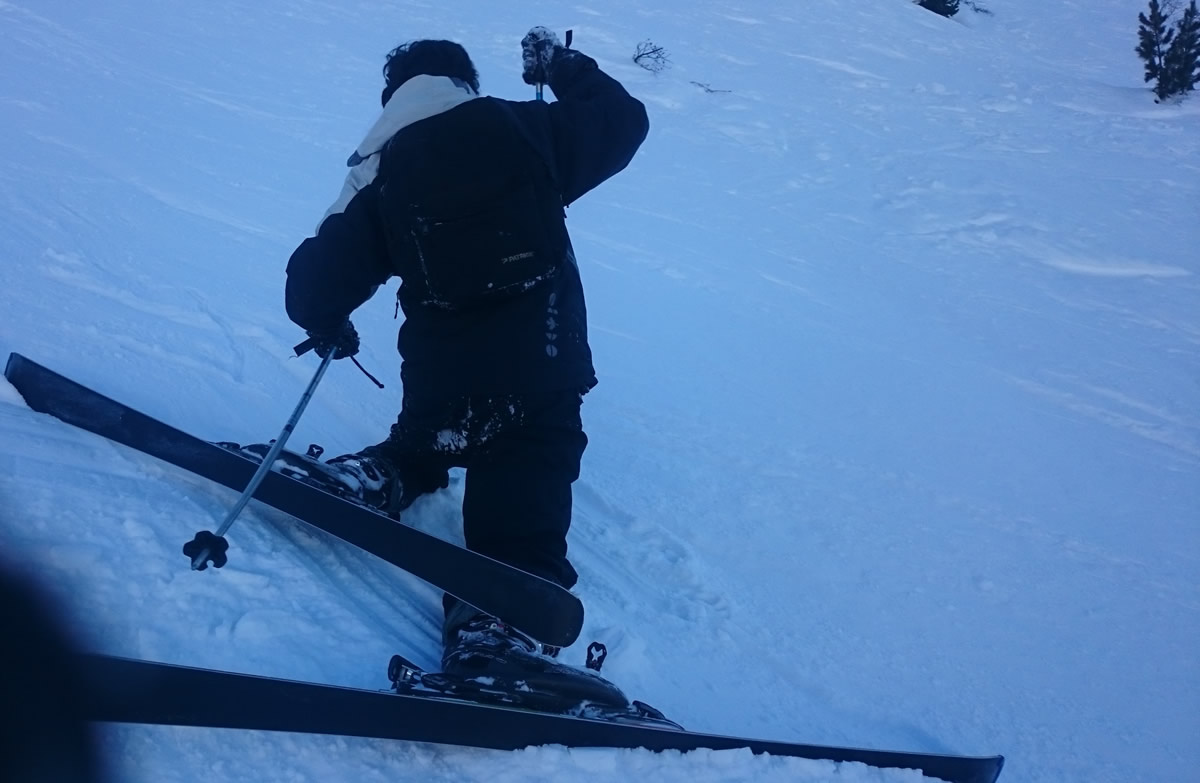
Yes, lessons can indeed seem expensive compared to the typical saisonnier’s income but, if you’re just starting out, you really should just bite the bullet and learn properly. Obviously, it’s an advantage if you know good skiers or snowboarders that will take you out – and you will undoubtedly learn things from them for sure – however, if you’ve never been skiing or snowboarding before, there really is no substitute for a few hours with a qualified instructor.
Practice doesn’t necessarily mean perfect
The major factor of learning to ski or snowboard is repetition anyway so taking a half-day with a pro at the start will set you up right so you can go out and practise the skills you’ve learned on your own. Don’t do like the guy above (Sergio from Portugal) and try to learn from YouTube videos alone. They’re a good back-up but there’s no substitute for learning the right technique from the start.
Also, the mantra ‘practice makes perfect’ only works if what you’re practicing is right, If you keep repeating the wrong techniques, practice makes imperfect – and you’ll pick up a heap of mistakes that will be very hard to break further down the line.
Saisonniers ski / snowboard lesson discounts
We’ve teamed up with industry-leaders SkiBro who offer an exclusive discount of 20€/CHF when you use the link below (note this is even cheaper than you’ll get on their website). Use code GURU20 when booking to qualify. Click for La Plagne ski / snowboard lessons.
20. When out riding, always dress in layers
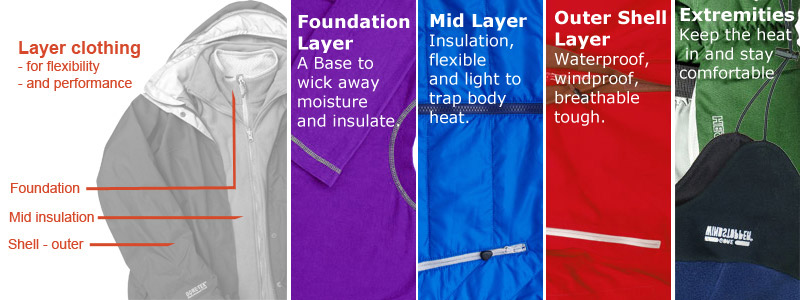
When you’re out riding, always think about layering your clothing. Clothes don’t actually keep you warm – rather, it’s the gaps of air between that give you warmth – so always dress in multiple layers. This also gives you the flexibility to add or remove clothing if you find yourself too cold or hot. The image above from Cool Antarctica gives a good idea of successful layering.
21. Money and cards while you’re doing a winter season

You’re abroad. This means you’re not using Sterling anymore and will be at the mercy of exchange rates and, worse yet, whatever your bank deems fit to charge for withdrawing money or using your card abroad. In some cases, this can end up a horrendous drain and result in hemorrhaging money – particularly if you’re one of those people who likes to take out “only what they need” from a cash machine. Check your bank’s rates and, if need be, change account or – better yet – just get a second card. Note – follow this link for La Plagne ATM cash machines – not all villages have them.
Save money with internet-only, currency exchange bank accounts
There are loads of internet-only banks these days that do a grand job of exchanging money at preferential rates compared to the randomness of traditional banks. My preferred option is the Revolut card – but there are many others. Simply transfer money from your regular bank into your Revolut card then exchange the cash at a fair rate into your local currency before spending.
Like most modern card services, Revolut comes with an app that alerts you each time you spend money – and can even keep track of how you’re spending. This can be viewed as a good or a bad thing – particularly after a heavy night out.
22. As a saisonnier, label your stuff
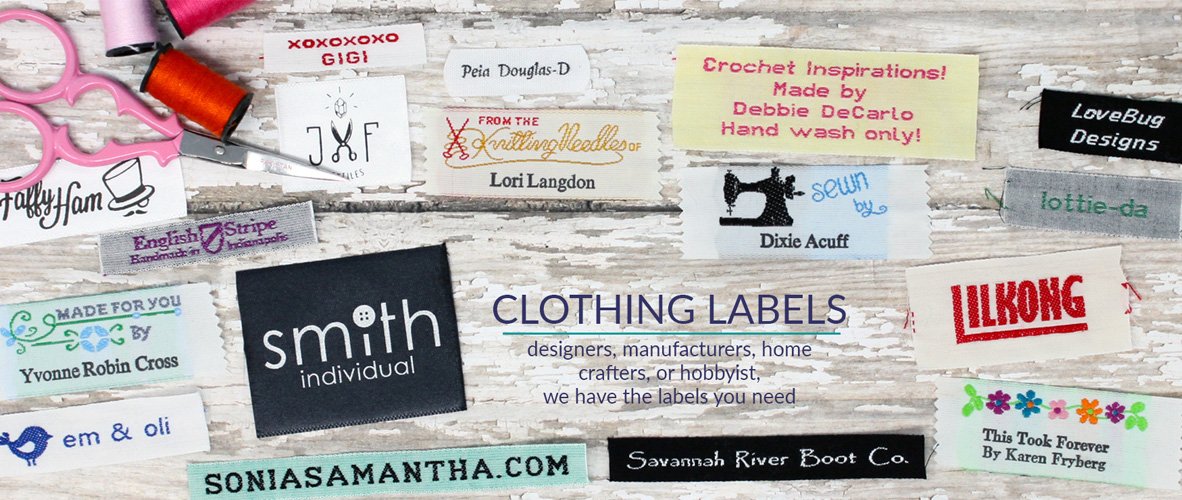
Yep, we’re talking one step away from having the gloves your Mum used to make you wear at primary school. Yes, the ones linked with string that you passed through the sleeves of your jacket so you didn’t lose them. However, this advice is sound and simple. You’re in a ski resort, you’re probably going to get drunk some of the time and you are definitely going to lose or forget things at some point.
Holidaymakers vs saisonniers
While holidaymakers might not be that generous in terms of trying to get things back, saisonniers almost always are. And you’ll make their job considerably easier if you label your stuff. Facebook is perfect for things like this (again, sign up to the La Plagne saisonniers pages) in case you lose stuff. Most locals and saisonniers will try to help. However, the task of getting things back is much easier if your stuff already has a name on it.
Looking after your phone as a saisonnier
As for phones, either carry a business card in the phone cover or get some kind of sticker with your email address. And always install phone tracking software (most modern phones have this installed already). Anyone stealing a phone these days is daft anyway as you can always lock it using the IMEI number but getting it back will be much more likely if you have some kind of contact details. This also applies to other important or costly stuff like keys, cameras, wallets, etc. you should also sign up to resort Facebook groups so you can post a request online just in case you do lose things.
23. Get an HD (or above) cam and a selfie stick
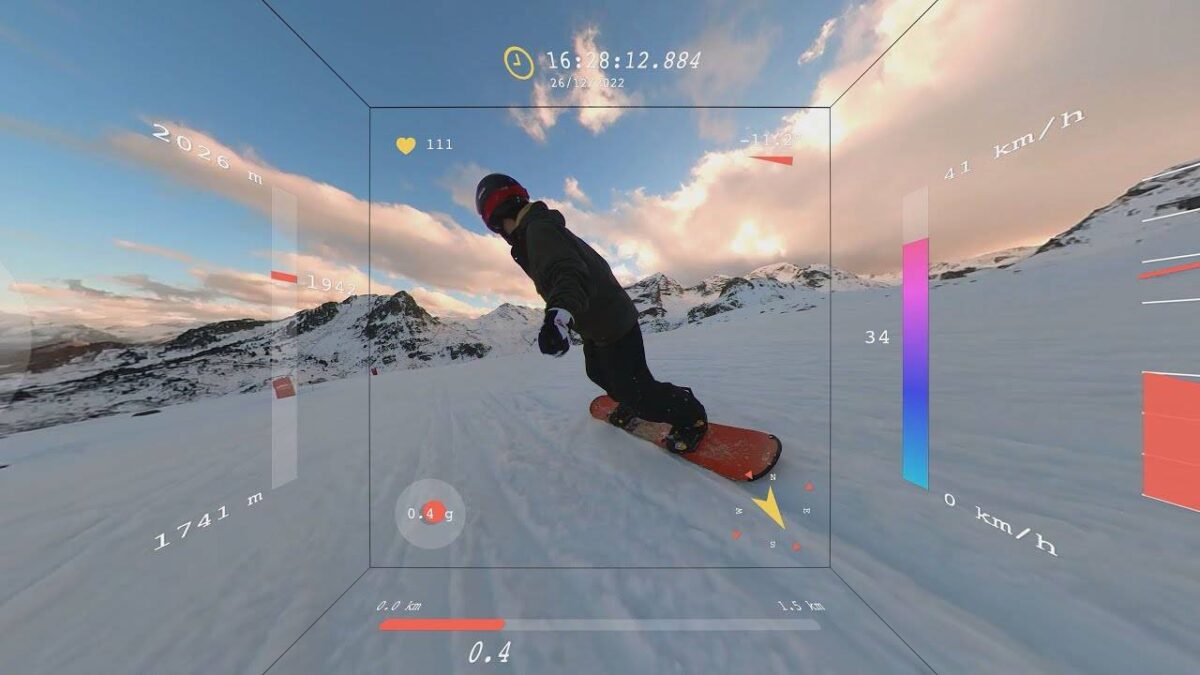
You obviously don’t need all of these but if you’re using an old-style GoPro, seriously, invest in a gimbal. YouTube was once awash with headache-inducing, super sketchy helmet cam footage – the kind of stuff that, in truth, was only interesting to the person who filmed it. Remember, this might end up the only season you do – you deserve to be left with life-long memories from it.
Most modern cameras now have in-built self-stabilising mechanisms but, if not, you should get a gimbal. Also, consider getting a selfie stick. You’ll find this a much better and involving way of filming rather than just standard helmet or chest-cam straps.
For action cams, look at the Insta 360 or GoPro’s latest cams including the GoPro Max. Yes, there are many other models available but I (and my mates) have used both and they’re the best.
The best video editing software for your ski season footage
In terms of editing software, you have many options including Adobe After Effects/Premiere or your laptop’s native editor. However, I’ve recently started using the excellent DaVinci Resolve – the core version of which is free and available to download on the link (Windows and Mac OS) – https://www.blackmagicdesign.com/products/davinciresolve. Resolve is on a par (if not better) than other, far more pricey editing apps.
24. Use tracking apps to log your ride
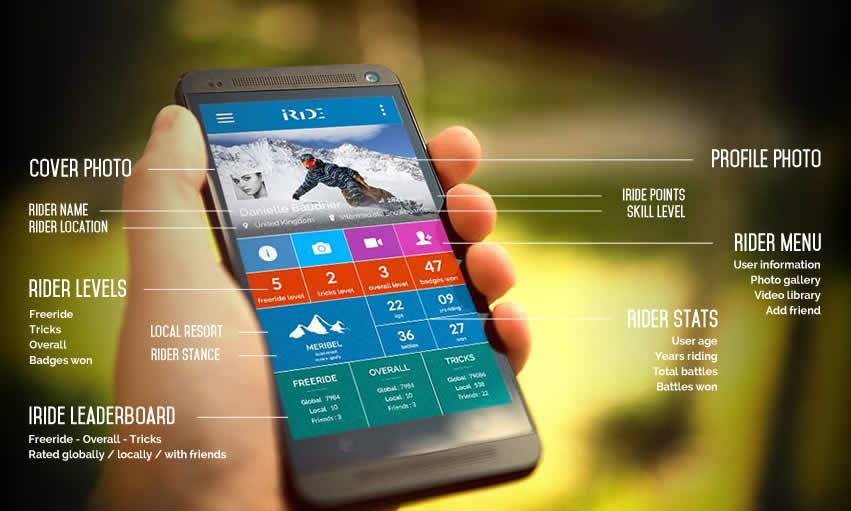
We’re currently developing a new ski and snowboard app called iRide – the most comprehensive wintersports app ever produced. However, until that’s released there is a multitude of other options you can use to GPS-track your skiing and snowboarding.
A tracking app is a great way to look back on your days and see where you’ve been. Even Googlemaps does an ok job of showing your tracks these days but, for the interesting stuff, you’ll want to download one of the more specialised apps which include altitude and speed data.
If you want to get a video of your tracks, install Relive on your phone / laptop (https://relive.cc/). This app tracks your run, speed, distance, etc then makes it into an animation when you’re done – similar to those see on Tour de France footage. Pretty awesome tech. Note, Relive can be used as a standalone or with other trackers like Strava etc.
Click these links for a selection of the best La Plagne travel apps and best La Plagne websites.
25. Mobile phone service deals
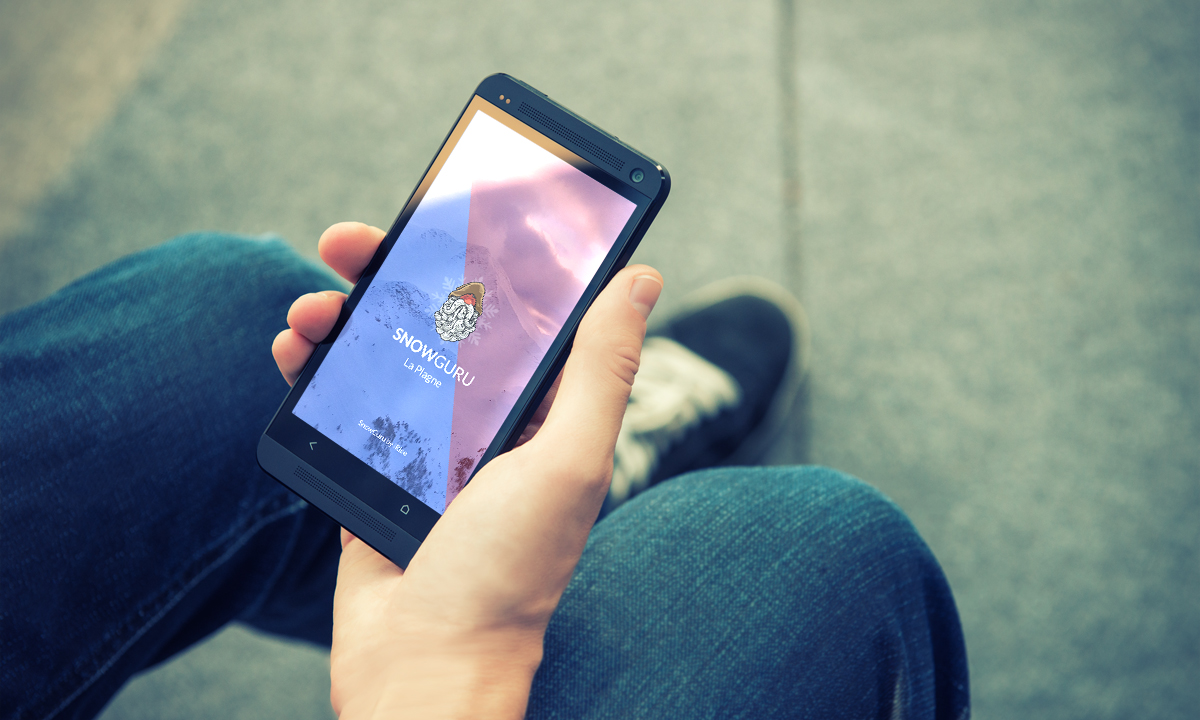
Here’s a truth. UK mobile companies are a rip-off. And I can say this with complete conviction having spent a good amount of time in Italy, Spain, France, Turkey, etc over the last few years.
The UK has some of the highest mobile rates in Europe. If you want a better deal, buy a local SIM card and run it alongside your UK SIM. Ideally, you’ll have a dual-SIM phone but, if not, it’s not that big a deal to buy a cheap mobile and swap your UK card out into that and instead use the local SIM as your main phone. You’ll be amazed at the savings.
Money-saving mobile phone tips for your winter season
For me personally, I have a Free mobile SIM with generous data included (35Gb if outside France), unlimited calls, unlimited calls and SMS and free voice messaging. The total cost? 19.99€ per month. And that’s PAYG ie no contract. I don’t even use my UK SIM anymore.
26. Keep your lift pass in your salopettes
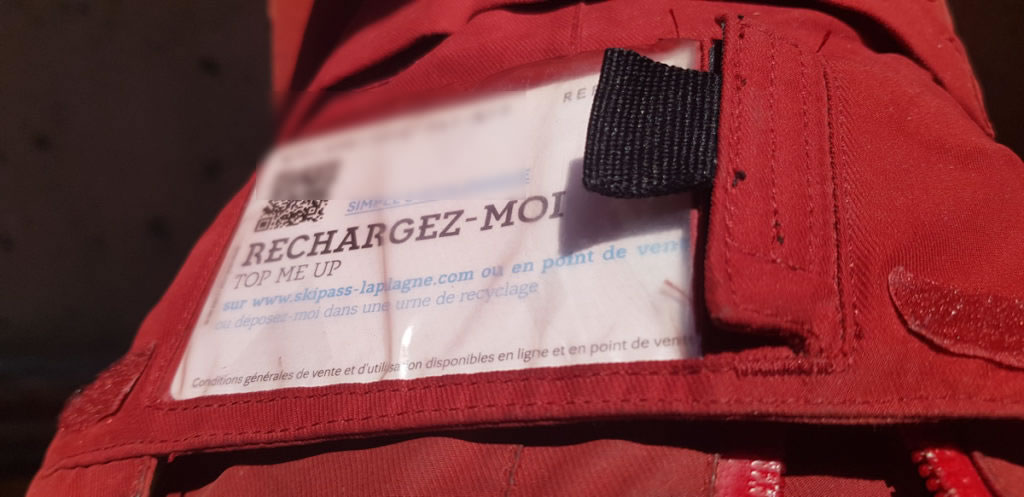
Most modern salopettes have a dedicated lift pass pocket on the side designed specifically for this purpose. Use it. You’re very unlikely to leave your salopettes somewhere but you are quite likely to misplace a jacket. Moreover, these pockets are the ideal height for the scanners at most ski lifts.
Securely store the paper receipt of your winter season pass
On the subject of list passes, despite being in a very computerised age, guard the paper receipt of your season pass with your life. Ski resorts tend to be a little weird with season passes and will often want all sorts of proof of purchase should you lose yours.
Don’t lend your season pass to others
Also, super important, don’t go lending your pass to other people. Resorts got wise to this a long time ago and you (plus the person using it) will likely get caught, fined, banned or worse.
27. Hire board, boots, skis, etc
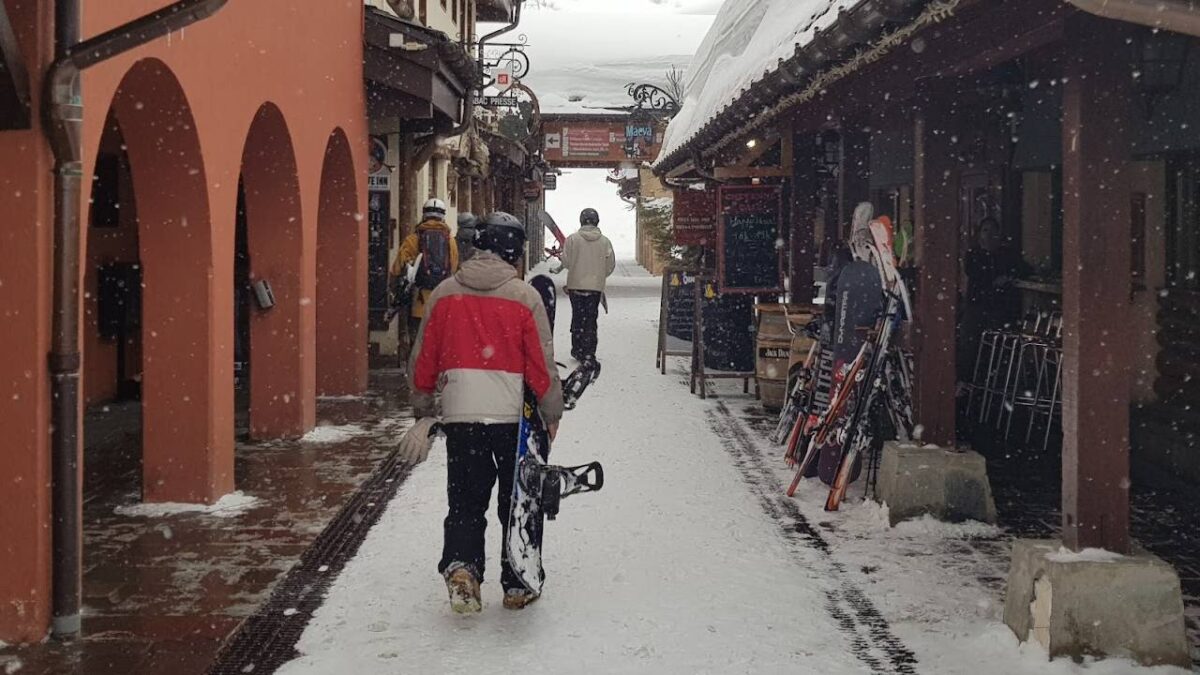
If this is your first winter season, there’s a chance you’ll also be new to skiing, snowboarding or both. Perhaps you’re already a skier and fancy trying snowboarding or vice versa. This is when hiring becomes a very good idea.
Money-saving deals on ski / snowboard rental
Whatever your circumstances, we’ve partnered with the most popular and most extensive ski/snowboard hire company in the Alps, SkiSet, If you’re looking for La Plagne ski and snowboard hire, these guys are the best and also offer exclusive discounts to La Plagne 360 users. The prices are even cheaper than you’ll find in resort or on their website. Follow the link above.
28. Family and friends when you’re doing a season
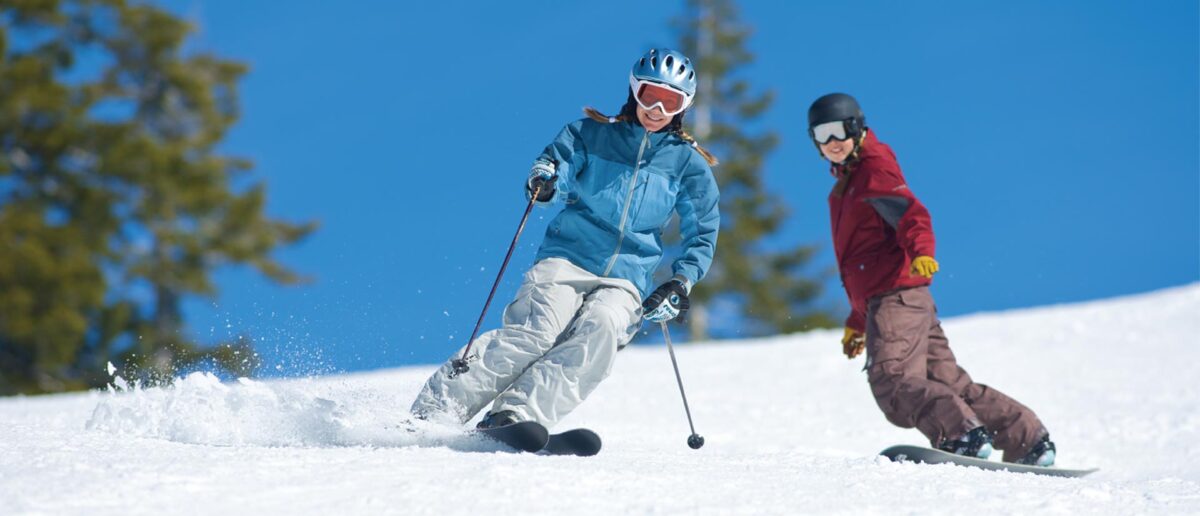
Without doubt, when family and friends back home get wind of the fact you’re doing a season, they’re going to have ideas of coming to visit. After all, what could be better than having their own personal guide who knows a resort inside and out?
Save money on ski holiday accommodation
Unless you’re truly fortunate and have landed accommodation with space to spare, you probably won’t want friends / family crashing with you. And even if you have space, it’s never that great an idea to show people the squalid conditions you’ve become used to living in. Better to put them into nearby accommodation instead.
The best deals on holiday accommodation for your family / friends
If you’re in one of the bigger resorts, you’re better helping visitors book where to stay as many resorts (Tignes, Val d’Isère, La Plagne, Les Arcs, etc) have multiple satellite towns. These are often at the other end of the area meaning you’ll only see your friends during the day. So we’ve partnered with the holiday specialists, Booking.com, to help you find the best La Plagne accommodation at the best price. Alternatively, they could also for an all-inclusive La Plagne holiday.
29. Roll your clothes when packing for a winter season
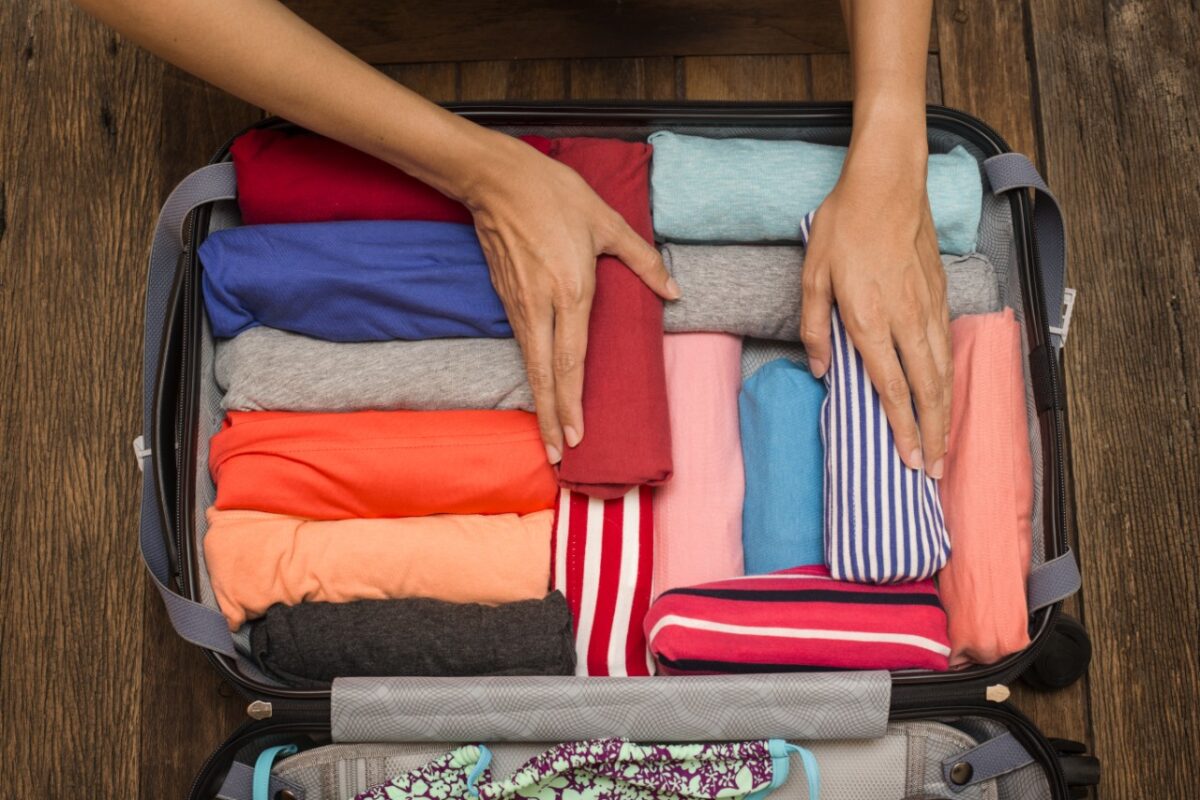
When you’re packing, don’t fold your clothes. Instead, roll them. Lay them out on the floor (or another flat surface) and layer them one above the other. So, for example, layer your t-shirts on top of each other (clothes of a similar shape work best). Once you’re done, roll them from the bottom to the top so they make a tube. Rolled clothes take up *way* less space than when they’re folded.
30. Most important of all – live it
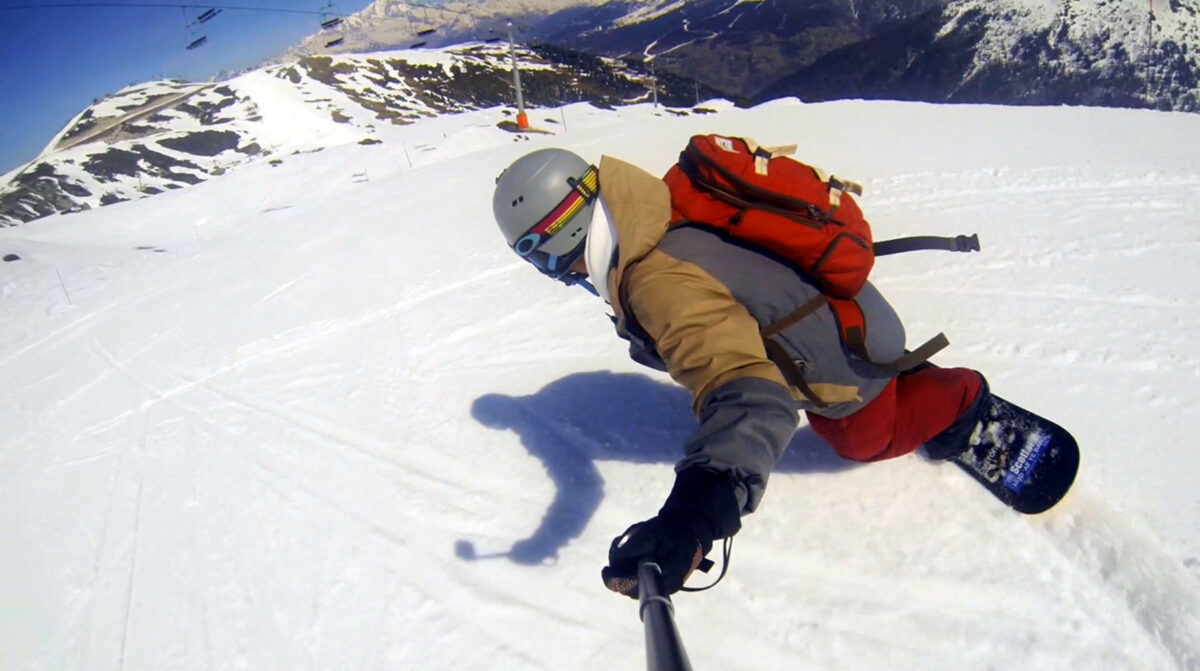
Doing a season could end up being the best time of your life when you’ll very likely meet friends that will last a lifetime.
If you do it right, doing a winter season could be one of the very best things you ever do in your life. Indeed (like so many of us), it might become a pattern for life before you even realise it.
One thing’s for sure – if you don’t try, you’ll never know. And remember, even if doesn’t end up being for you, door-to-door, getting from France back home (or most European countries for that matter) takes around 12 hours. Not exactly a stress if you decide you want to go home.
My advice, if it’s an itch that needs scratched, take the plunge and see if it’s for you.
La Plagne accommodation deals
Full area piste map


